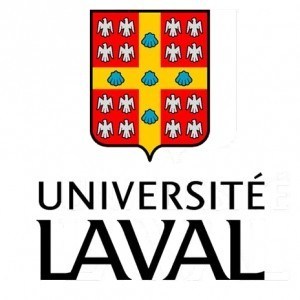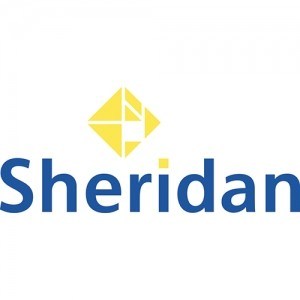Photos of university / #ulaval
The Bachelor's Degree in Economics and Politics at Laval University offers students a comprehensive understanding of the fundamental principles that govern economic systems and political structures worldwide. This integrated program is designed to equip students with critical analytical skills, enabling them to examine complex economic phenomena and political processes through various theoretical and practical lenses. Throughout the curriculum, students will explore a broad range of subjects including microeconomics, macroeconomics, political theory, international relations, public policy, econometrics, and political economy. The program emphasizes the development of strong research capabilities, fostering the ability to critically evaluate economic data, political strategies, and policy decisions. Students will also learn to communicate effectively, both orally and in writing, to present complex ideas clearly and persuasively.
The program combines rigorous coursework with real-world applications, including case studies, simulations, and internships, to ensure graduates are well-prepared for careers in government, international organizations, research institutes, or the private sector. Faculty members are experienced scholars and practitioners dedicated to mentoring students and guiding their academic and professional growth. The curriculum is periodically updated to reflect current trends and challenges in economics and politics, ensuring that students acquire relevant, up-to-date knowledge. Graduates of this program will have a solid foundation to pursue advanced studies or to enter the workforce with confidence, equipped with a nuanced understanding of the interconnected nature of economic and political systems globally.
The Bachelor of Economics at Laval University offers students a comprehensive and rigorous education in economic theory, applied economics, and related social sciences. This program is designed to provide students with a solid foundation in microeconomics, macroeconomics, econometrics, and quantitative analysis, enabling them to understand and analyze complex economic issues both at the national and international levels. Throughout the program, students explore various areas such as economic policy, development economics, public finance, environmental economics, and international trade, gaining insights into how economic principles are applied to real-world challenges.
The curriculum combines theoretical coursework with practical applications, including case studies, research projects, and internships, to prepare students for careers in government agencies, consulting firms, financial institutions, and international organizations. Emphasis is placed on developing critical thinking, analytical skills, and an understanding of economic data analysis techniques. Students also have opportunities to specialize in particular areas of interest through elective courses, such as political economy, behavioral economics, or financial economics.
In addition to core economics courses, the program incorporates training in political science, public policy, and quantitative methods, reflecting the interconnectedness of economics and politics. This multidisciplinary approach equips graduates with a broad perspective and interdisciplinary skills essential for addressing contemporary economic and political issues.
The program encourages student participation in seminars, conferences, and collaborative research initiatives, fostering an active learning environment. Moreover, the program prepares students for advanced studies in economics or related fields, offering pathways to graduate programs, including master's and doctoral degrees.
Graduates of the Bachelor of Economics at Laval University are well-equipped to pursue careers in economic analysis, policy advising, research, and planning. They are also prepared to engage in roles requiring rigorous quantitative reasoning, strategic problem-solving, and effective communication of complex economic concepts. With a strong emphasis on both theoretical knowledge and practical skills, this program aims to develop competent and socially responsible economists capable of making meaningful contributions to society.
Program Requirements for the Bachelor's Degree in Economics and Politics at Laval University:
To successfully complete the Bachelor's degree in Economics and Politics, students must fulfill a combination of general education requirements, core courses, major-specific courses, electives, and practical training components. The program is designed to provide a comprehensive understanding of economic theories, political systems, and their interrelations, preparing graduates for careers in public policy, government, research, international organizations, or further academic study.
Admission to the program typically requires a high school diploma or equivalent, with a strong emphasis on mathematics, social sciences, and language proficiency. Prospective students must submit proof of their high school academic records, and some prerequisites may include courses in mathematics, history, or social sciences.
The curriculum is divided into several core areas: foundational courses in microeconomics and macroeconomics, political science fundamentals, quantitative methods, and research techniques. Students are expected to take introductory courses such as Principles of Economics, Introduction to Political Science, and Basic Statistics. As they progress, students take specialized courses like International Economics, Public Policy Analysis, Political Theory, and Comparative Politics.
In addition to required courses, students must complete electives to broaden their knowledge, which may include topics like Environmental Economics, Development Economics, International Relations, or Public Administration. To encourage practical experience, the program incorporates internships, co-op opportunities, or research projects. Participating in internships with governmental agencies, NGOs, or international organizations helps students gain real-world insights and skills.
Language proficiency is also essential, as students are often expected to communicate effectively in both French and English, reflecting Laval University’s bilingual environment. Certain courses are offered in both languages, and proficiency tests may be required for non-native speakers.
Graduation requirements include earning a minimum number of credits, typically around 120-130, with a specified grade point average (GPA) threshold, usually around 2.0 on a 4.0 scale or equivalent, although this can vary depending on the year and program updates. Students must also complete a capstone project or thesis, demonstrating their analytical and research abilities in economics and politics.
Participation in seminars, workshops, and colloquia is encouraged to foster critical thinking and professional development. Once all academic requirements are met, students are eligible to graduate and receive their Bachelor’s degree in Economics and Politics, preparing them for diverse career paths or postgraduate studies.
The financing of the Bachelor's degree program in Economics and Politics at Laval University primarily involves a combination of government funding, student contributions, and institutional resources. The program benefits from public funding allocated by the Quebec government, which supports higher education and ensures that tuition fees are relatively affordable for domestic students. Laval University, being a public institution, receives subsidies that help subsidize the operational costs of the program, including faculty salaries, research activities, and academic infrastructure. Tuition fees are set annually and are subject to changes in government policy, but they generally remain accessible to residents of Quebec, with fees for out-of-province and international students being higher.
Students often access financial aid through government bursaries, scholarships, and loan programs designed to assist Canadian and Quebec residents. The Quebec government offers several grants and bursaries specifically targeted at university students, including the Quebec Student Assistance Program (Aide financière aux études), which provides financial support based on family income and other criteria. Additionally, Laval University offers its own scholarships and merit-based awards to help reduce the financial burden on students demonstrating academic excellence or financial need. Many students also seek external funding sources, including private scholarships, employer sponsorships, and research grants for those engaged in research components of their studies.
The program's structure allows for part-time work opportunities both on and off-campus, which can supplement students' incomes. Laval University has partnerships with local organizations and government agencies that sometimes offer paid internships or cooperative education placements, providing practical work experience and financial support. International students participating in the program often pay higher tuition fees, and they may seek scholarships aimed at international students to aid their financing.
In summary, the financing of the Economics and Politics program at Laval University combines government subsidies, student contributions through tuition, and various financial aid options, including internal and external scholarships, loans, and part-time employment opportunities. This diversified funding approach aims to make higher education accessible while supporting the academic and research missions of the university.
The Bachelor of Arts in Economics and Politics at Laval University offers students a comprehensive understanding of the interconnected fields of economics and political science. This program is designed to equip students with the analytical tools necessary to understand economic and political phenomena, develop critical thinking skills, and prepare for careers in public policy, government, research, or further academic pursuits. The curriculum combines foundational courses in microeconomics, macroeconomics, political theory, and comparative politics, alongside specialized electives that explore topics such as international relations, public administration, economic development, and political philosophy. Students engage in both theoretical and empirical analyses, gaining proficiency in quantitative methods and data analysis to interpret real-world issues. Throughout the program, there is an emphasis on developing strong communication skills, ethical reasoning, and an understanding of the societal impact of economic and political decisions. Laval University also encourages internships and experiential learning opportunities that connect students with local and international organizations, providing practical experience relevant to their academic interests. Graduates of this program are well-prepared for diverse roles in public administration, policy consulting, research institutions, NGOs, or to pursue graduate studies. The program maintains a balance between academic rigor and practical application, ensuring students are ready to contribute meaningfully to societal development and policy-making processes. Laval University’s multidisciplinary approach ensures that students graduate with a broad perspective and a deep understanding of the social sciences, preparing them for dynamic career paths in a globalized world.


